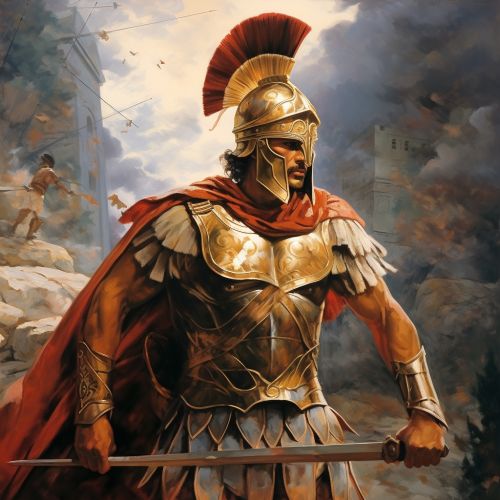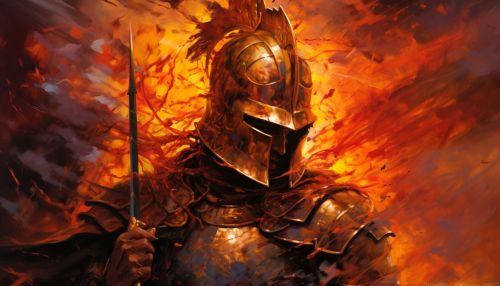Ares
Introduction
Ares (Greek: Άρης, Áres) is a significant figure in ancient Greek religion and mythology. He is often identified as the god of war, one of the Twelve Olympians, and the son of Zeus and Hera. In literature and lore, Ares represents the violent and physical aspects of war, in contrast to his sister Athena, the goddess of military strategy and skill.
Mythology and Literature
Ares is one of the most complex characters in Greek mythology. His role as a god of war does not limit him to the battlefield, as he is also associated with civil order, manly courage, and is the protector of the city of Thebes.
Birth and Family
Ares is the son of Zeus, the king of the gods, and Hera, the queen. He is part of the Twelve Olympians, the principal deities of the Greek pantheon. His siblings include Hebe, the goddess of youth; Eileithyia, the goddess of childbirth; and Hephaestus, the god of fire and metalworking.


Role and Characteristics
Ares is often depicted as a mature warrior dressed in battle gear, symbolizing his role as a war deity. He embodies the aggressive and violent aspects of conflict, unlike Athena, who represents strategic warfare. Ares is also associated with courage, masculinity, and physical strength. He is often accompanied by his sons, Phobos and Deimos, who personify fear and terror, respectively.
Worship and Cult
The worship of Ares was not as widespread as that of other Olympian deities. However, he had a significant cult in Thrace and was revered in Sparta, one of the most militaristic cities of ancient Greece.
Temples and Sacred Sites
Temples dedicated to Ares are relatively rare in Greece. One of the most notable is the temple in the ancient city of Acharnae, where the god was worshipped as a healing deity. Another significant site is the Areopagus in Athens, a hill that was associated with Ares and served as a place for trials and judicial proceedings.
Ares in Art and Culture
Ares appears frequently in ancient Greek art and literature. He is often depicted in battle scenes on vases and sculptures. In the epic poems of Homer, Ares is portrayed as a destructive and destabilizing force, reflecting the Greeks' ambivalence towards the horrors of war.
Influence on Roman Mars
Ares was equated with the Roman god Mars, who, unlike Ares, was also a god of agriculture and fertility, in addition to war. This syncretism significantly influenced the character and worship of Mars in the Roman world.
